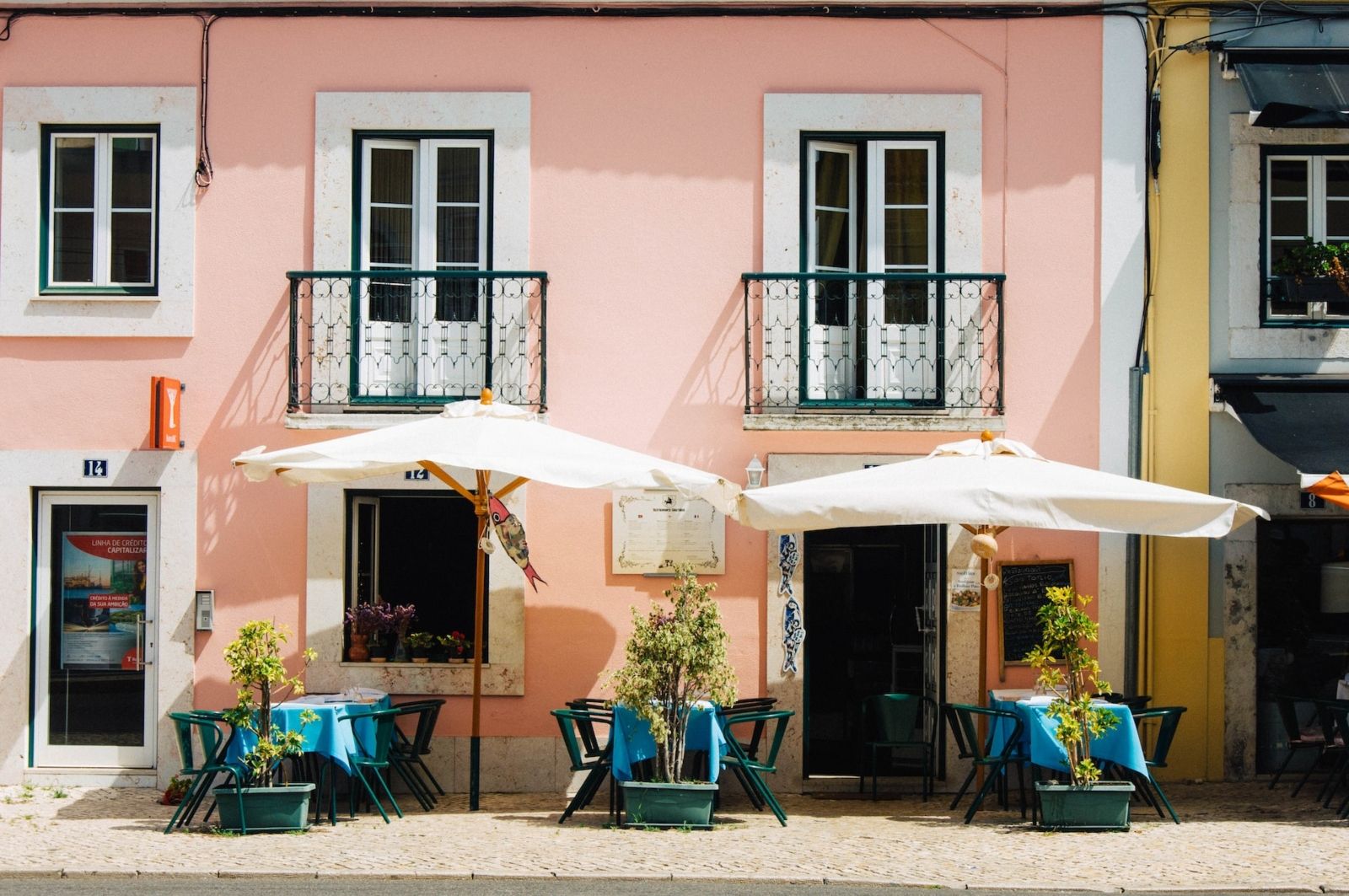Retire in Portugal: A Full Guide
Who Can Retire in Portugal?
If you’re considering retiring to Portugal, there are some eligibility requirements that must be met. In general, any individual over the age of 65 is eligible to migrate to Portugal to pursue retirement. Those who are younger may also be able to retire in Portugal, however, it will depend on your individual circumstances and income levels.

In order for those under the age of 65 to qualify for a residence permit in order to retire in Portugal, applicants must demonstrate a minimum monthly income of at least €1,000 or have enough funds available (€350 per month) as well as sufficient private health insurance cover. The funds can be earned through pension payments or worldwide income, such as renting properties abroad.
It should also be noted that individuals looking to relocate permanently must show proof that they have sufficient resources and financial stability throughout their stay in Portugal. This means those wanting to retire may need to prove they possess assets with a value at least five times greater than the annual cost of living in the country.
Additionally, those non eu citizens wishing to move and retire in Portugal must provide proof of health private insurance valid for all Schengen countries before entering the country’s borders.
Why Should I Retire in Portugal?
Retiring in Portugal is an attractive option for retirees looking to move abroad due to its laid-back lifestyle and friendly local culture. In order to retire in Portugal, individuals must meet certain requirements and obtain the necessary visas and residence permits. There are two types of visas that can be used a retirement visa: the D7 visa and the type 1 residency permit.
What Are Your Visa Options?
The D7 Visa
Also known as the passive income visa, it is a residency visa for foreigners living on income from abroad - applicants must demonstrate an income of at least €8,460 for the previous 12-month period. The D7 Visa does not require a large upfront investment, however, it does require you to live in Portugal for more than half the year (183 days).
The Type 1 Residency Permit
This visa is typically offered when an individual has found employment within the country already or can prove they generate enough income outside of Portugal via pension payments or rental income from property investments abroad etc.
Golden Visa
The Portuguese Golden Visa program is an attractive option for investors looking to retire abroad and take advantage of the amazing lifestyle in Portugal. This visa allows foreign investors to live in the country for up to five years and grants them the right to stay indefinitely.
In order to qualify for the Golden Visa, applicants must meet certain requirements as outlined by the Portuguese government, they must demonstrate financial stability by investing in the country - through a qualifying investment fund or property.
Overall, the Portuguese Golden Visa program is an attractive option for retirees. The visa itself can be obtained within three months after submission provided that all required documents are supplied along with a completed application form and applicable fees paid – making it easier than ever for retirees who wish to relocate permanently overseas!
So, What Is The Best Visa for You?
No matter what option you choose though, it’s important that you check with a professional before making any definitive decisions about relocating permanently – especially if you’re not familiar with Portuguese government, law and tax regulation.
Benefits of Retiring in Portugal
Retiring in Portugal grants many benefits including access to Europe's renowned free healthcare system (Portugal's National Health Service), excellent public transportation networks, low cost of living compared to other European countries, plenty of activities like outdoor sports, friendly culture, and a laid-back Portuguese life.
However, before making any permanent relocation decisions it is important that you understand all eligibility requirements around obtaining the necessary visas and residence permits as well as being aware of any applicable tax laws that may apply when moving overseas. With proper planning and research, retiring in beautiful Portugal can be an enjoyable experience full of new adventures!
Retirement Laws and Pensions
Portugal has a range of laws and regulations regarding pension income, taxes, and visas that expats must be aware of. Expats wishing to retire in Portugal must first obtain a residence visa valid for at least one year and then apply for a permanent residence permit.
For pensioners receiving payments from abroad, they must declare such payments with their local tax office each year in order to ensure compliance with Portuguese law. Pensioners may also be entitled to claiming certain benefits specific to their residency status.
In terms of social security benefits, expats who have worked and paid social security contributions abroad may be able to transfer their entitlements or obtain a reciprocal agreement between the countries involved, allowing them access to a wider range of benefits than would otherwise be available in their home country alone.
Finally, when researching retirement laws and pensions in Portugal it is important that you consult a professional advisor or lawyer who is familiar with Portuguese laws, taxation and double taxation regulations and pension schemes so that you can make informed decisions about your move overseas and enjoy a secure retirement in this beautiful country.
Tax in Portugal
Retiring in Portugal comes with a range of tax laws that expats must be aware of before relocating.
Foreigners in Portugal are generally liable to pay income tax on all revenue earned from Portuguese sources as well as any foreign income remitted into the country. This includes salaries, investments, rental income and business profits.
To calculate the tax liability, all taxable revenue should be declared to the Tax Authority which will then calculate your annual contribution according to the respective Portuguese taxation tables.
Income tax rates in Portugal are determined by a progressive scale of your annual revenue depending on how much you earn each year. Expats may also be eligible for certain deductions and exemptions, such as relief for dependents or professional expenses incurred during the course of work activities.
Inheritance
Retiring in one of the most affordable European countries will not only give you the benefits of the NHR program - find more information here - but inheritance advantages too.
Portugal has no inheritance tax on real estate properties. Retirees in Portugal who are looking to acquire property from another person may be subject to pay taxes on inheritance. This is a tax that must be paid within six months of receiving the asset, with rates ranging from 0-10% depending on one’s relationship with the deceased and the value of the inherited asset(s). For instance, spouses or direct descendants of the deceased are exempt from paying any inheritance tax.
Private equity funds are taxed at 0%.
According to the Portuguese Civic Code, the inheritance process from your home country should apply.
Overall, understanding Portuguese tax laws before deciding to retire in Portugal is essential so that expats can make informed decisions about their move overseas. Additionally, consulting a professional advisor or lawyer who is familiar with Portuguese taxation regulations can help ensure compliance with local laws while taking advantage of any available deductions or exemptions that may reduce one’s annual burden – allowing them peace of mind knowing that they are managing their finances properly while living in this stunning European nation!
Costs of Living in Portugal
Living in Portugal can be quite affordable, with the living expenses being noticeably lower than many other countries in western Europe. While prices for day-to-day items such as food and transportation vary depending on location and lifestyle.
Food And Groceries
The cost of groceries in Portugal is quite reasonable compared to other developed countries, with basic items such as milk, eggs and bread costing much less than they would typically in the US or UK. Additionally, supermarkets offer a wide range of international products – especially near larger cities – including cheese and charcuterie from Spain and France, as well as various types of imported beer and wine.

Restaurants
When it comes to dining out in Portugal, the average price for a meal at a mid-range restaurant is about €20 for two people, including drinks. In terms of traditional Portuguese cuisine, dishes like favas (a stew made from fava beans) or bacalhau (salt cod served with potatoes) are especially popular options among locals and visitors alike. For those looking for something more upscale, there are plenty of high-end restaurants in large cities like Lisbon that offer Michelin star meals at prices ranging from €40-100 per person without drinks included.

Public Transportation
In terms of public transportation in Portugal, there are buses running throughout most major cities along with metro systems available in Lisbon and Porto. The fares vary depending on the distance travelled but are usually priced between €1-2 per ride – making it easy to get around without breaking the bank. Additionally, there are plenty of discount tickets available for those who plan on using public transit frequently – such as monthly passes or multi-ride cards – which can further reduce costs when travelling around the country.

Overall View
While some areas tend to be more expensive than others due to higher costs of living associated with bigger cities like Lisbon or Porto, overall Portugal remains one of the most affordable countries within Europe - making it an attractive destination for expats looking to enjoy an affordable yet comfortable retirement overseas!
Real Estate
The real estate market in Portugal is a thriving and diverse one, with a variety of options to suit everyone’s needs. Property prices have been steadily increasing over the past few years, with Lisbon becoming particularly popular amongst foreign buyers. Prices are still relatively low compared to other European cities like London or Paris, especially if you want to live in the city center, and there are plenty of mortgage options available for those who require them.
In terms of the types of property available, there is something for every budget and lifestyle. From luxurious villas with private pools and stunning views of the ocean to more affordable apartments in bustling city centres, Portugal has it all. The country also boasts an impressive selection of rural properties in more isolated locations – such as rustic farmhouses or cottages that offer seclusion and peace away from the hustle and bustle of city life.
Buying property in Portugal also comes with a number of benefits, such as residency permits and tax incentives. The Golden Visa program allows property buyers to apply for Portuguese residency if they invest real estate here – granting them access to visa-free travel throughout the Schengen Zone as well as access to other EU countries.
Overall, the real estate market in Portugal is an attractive option for foreigners looking for an affordable yet beautiful place to live or invest in. With its sunny climate and great cost of living combined with generous tax benefits – it is no wonder why so many people are flocking here from all over the world!
Best Places to Retire in Portugal
Places like Lisbon, Porto, Braga, and Southern Portugal (Algarve region) are great options to explore. You can find more information about these specific areas in our post about the Digital Nomad visa in Portugal.
And in case you want to learn more about the migration system in Portugal, feel free to contact us!

